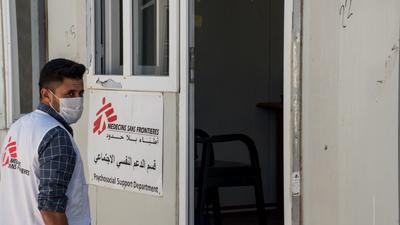For decades, Médecins Sans Frontières has provided comprehensive mental health support to people around the world. From psychological first aid in an emergency setting, to mental health services alongside care for pre-existing conditions, to standalone psychosocial and psychiatric care, here are some of the ways our teams are responding.
LEBANON
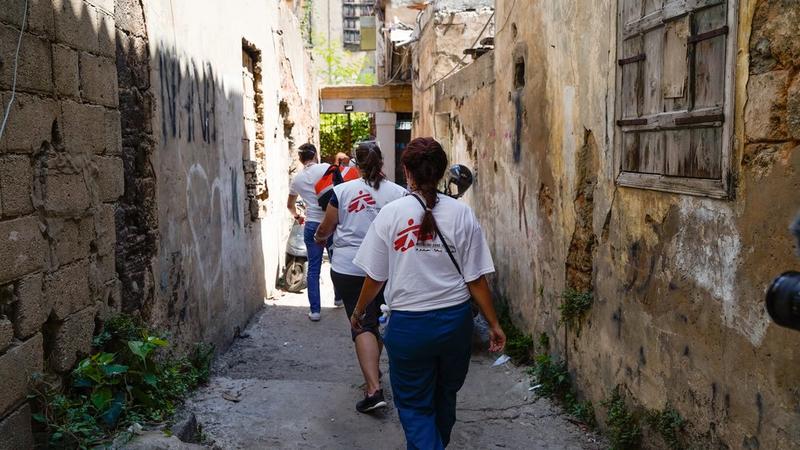
Nearly two thirds of patients consulting with MSF’s mental health team in Beirut are showing symptoms related to anxiety and depression. More than half of them attribute their symptoms to the explosion that took place on 4 August. For others with pre-existing mental health issues, 82 per cent admit their symptoms increased in severity after the explosion.
“After the blast, we are seeing an increase in number of consultations. Even though many people have by now treated their physical wounds, secured their external environment and basic needs – like housing, electricity, water – many still cry at night, or they are startled by any slight sound, like that of a pen dropping. They can feel that something isn’t right,” says Rima Makki, MSF’s mental health manager in Beirut. “In the past in Beirut, society and communal networks – family, friends, neighbours - would have normally been the first point of informal support for a troubled person. Today, these networks are all equally impacted – people don’t know who to go to, so they are turning to mental health specialists.”
MEXICO
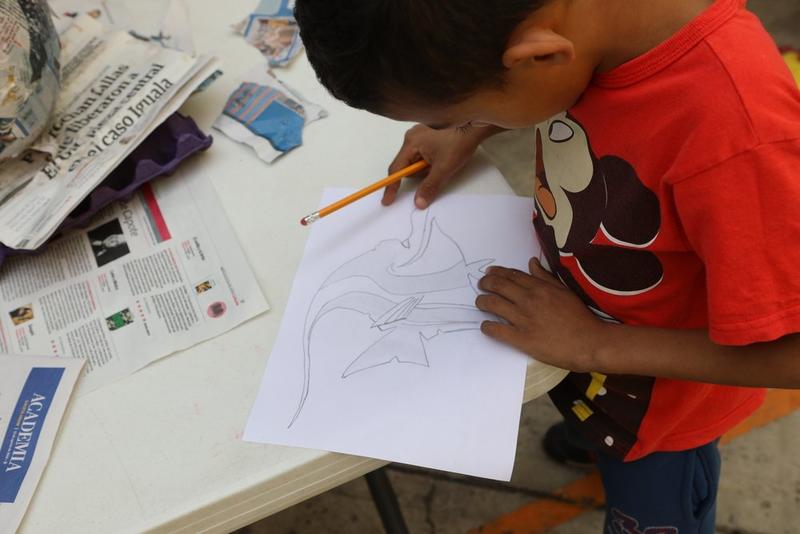
MSF’s Centre for Integral Action, known by its Spanish acronym El CAI, provides care for migrants living in Mexico City, who have suffered from torture and other forms of extreme violence. The centre offers long-term care including psychological and psychiatric treatment and social services – including support with applying for asylum, education and job-training services. On average patients stay with the program for up to four months before they are ready to start the next chapter in their lives. Pictured here, a child at El CAI participates in a piñata-making activity during a psycho-social session in November 2019. © Melissa Pracht/MSF
INDIA
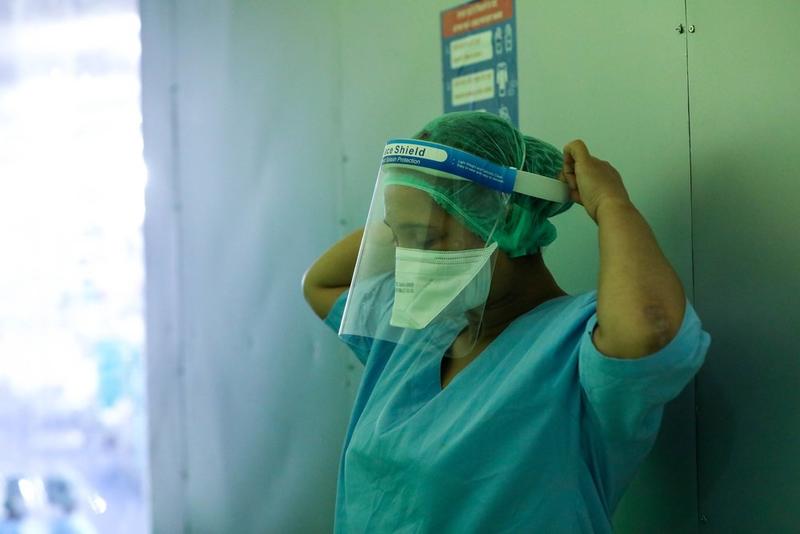
With the rapid spread of COVID-19 in India, MSF launched a 24-hour hotline providing mental health support by phone in both English and Hindi. In Kashmir, outpatient departments at all hospitals—including MSF mental health clinics—are currently closed to prevent the spread of COVID-19. In lieu of this, MSF teams are continuing to provide psychological support via mobile phone consultations. © Garvit Nangia/MSF
BANGLADESH
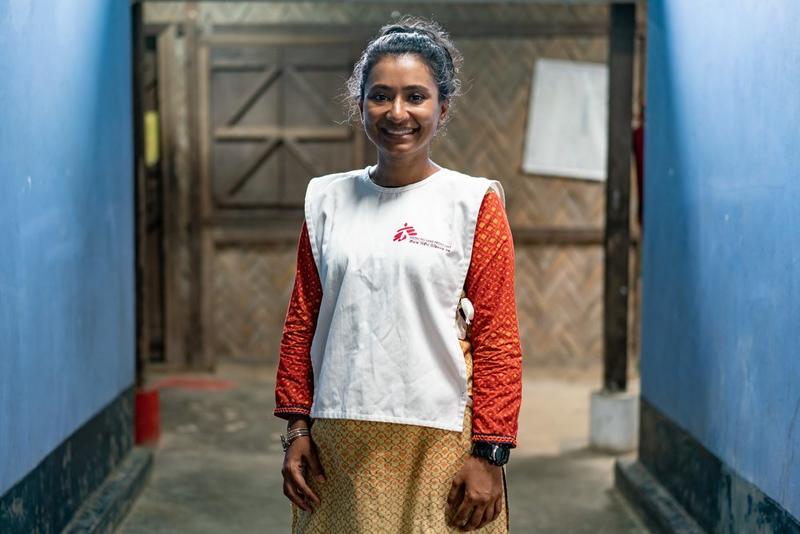
MSF provides comprehensive mental healthcare, including psychiatric care, across all our facilities caring for Rohingya refugees in Cox’s Bazar. “Most of our patients exhibit visible signs of mental stress and trauma. Others, who suffer from depression, post-traumatic stress disorders, psychosis and schizophrenia go unnoticed by their community,” says Tanya Morshed, MSF psychotherapist and clinical social worker in Bangladesh.
“The need for mental healthcare is often not understood by patients,” adds Morshed, “Many patients are referred to mental health counsellors only when they come to our health facilities to seek medical treatment for physical ailments.”
LESVOS
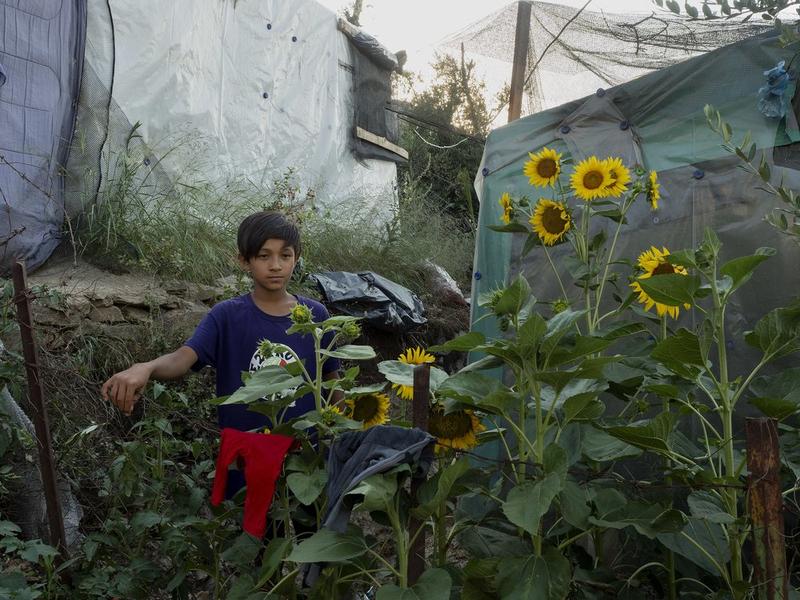
Since March 2020, thousands of migrants and asylum seekers have been locked down in overcrowded camps on the Greek islands due to restrictions imposed by COVID-19. MSF has warned about the precarious and inhumane conditions on Lesvos for years. In September 2020, a fire in Moria forced more than 12,000 people to be evacuated from the camp, interrupting medical services available for the refugees and asylum seekers, including services at the MSF paediatric clinic.
Prior to this, Yasin, a young boy from Afghanistan who lives in a makeshift shelter with his family, visited the MSF paediatric clinic weekly, to consult with a child psychologist. He suffers from nightmares and is constantly afraid that something bad will happen to him in Moria. When he grows up, he wants “to help children like his psychologist” in the MSF paediatric clinic.
BRAZIL
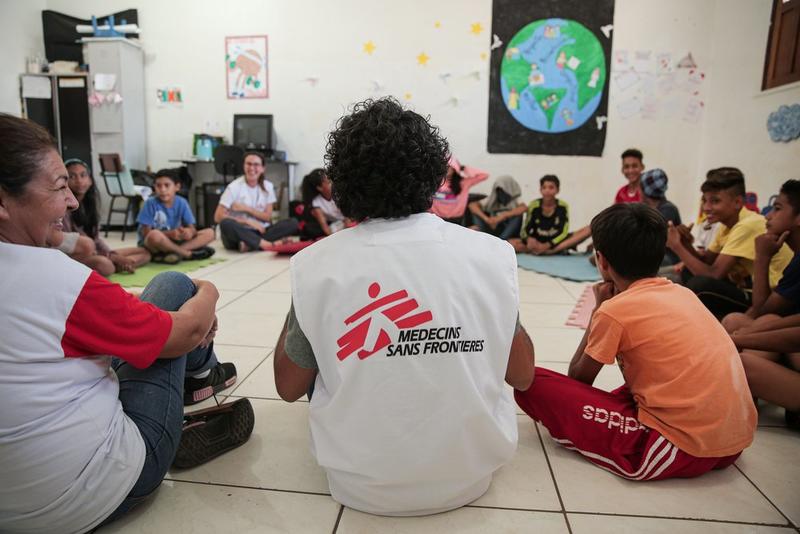
in 2019 in response to large numbers of children and adolescents fleeing the crisis in Venezuela and crossing the border into Brazil, MSF’s mental health team in Roraima identified three pillars of care: identity and self-esteem; inclusion and belonging; protection and prevention against abuse. © Mariana Abdalla/MSF
BELARUS
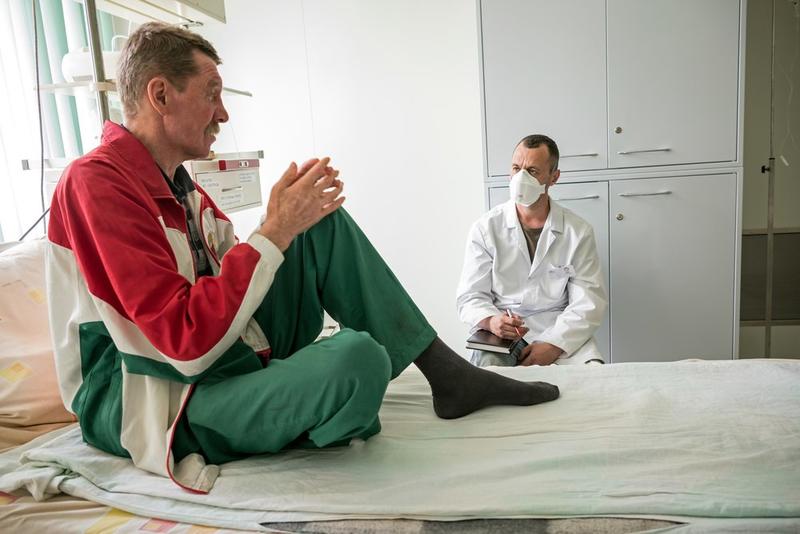
Mental healthcare is often provided as part of ongoing care for other medical issues. In Belarus, where there is a high burden of multi-drug resistant tuberculosis, MSF teams provide support in four tuberculosis facilities in Minsk. Together with the Ministry of Health, MSF provides a harm-reduction program helping patients with drug-resistant tuberculosis and alcohol-use problems to manage their dependency on alcohol and other substances in order to finish their treatment successfully.
HONDURAS
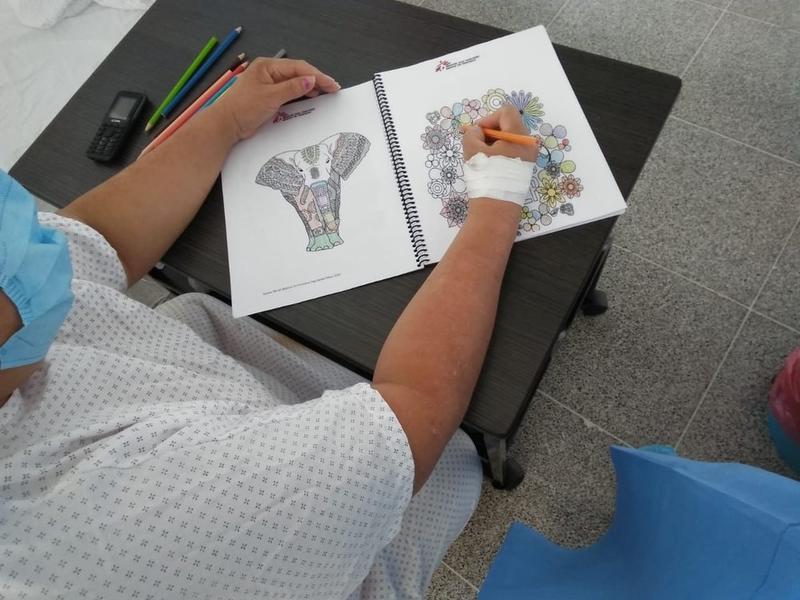
In June 2020, to help keep the hospitals from being overwhelmed, MSF started providing care for patients with mild to severe COVID-19 symptoms at the Autonomous University of Honduras. The health centre supports the Tegucigalpa hospital system by providing comprehensive medical care for patients and their families.
Psychologists and health promoters provide patients with an activity book upon admission, in which they can draw, paint, and read, as a tool for recreational activity and for mental healthcare. This activity goes hand in hand with psychological care, which is carried out by phone and in person.
CENTRAL AFRICAN REPUBLIC
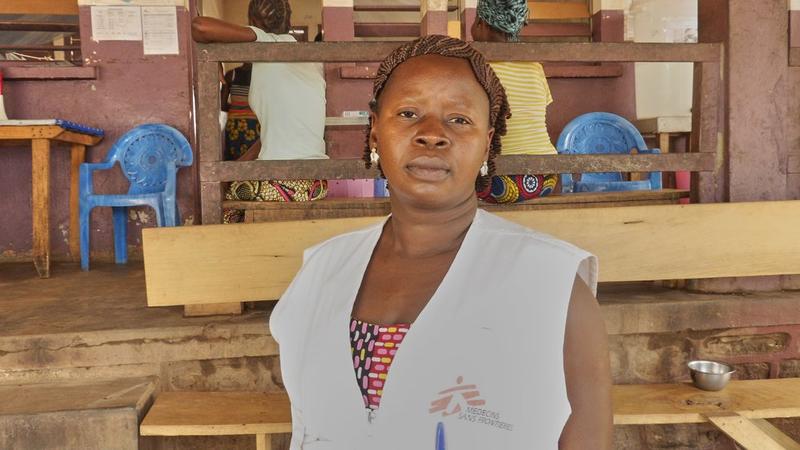
Olga, MSF mental health counsellor, facilitates discussion groups at Bossangoa hospital, helping people through stress management, family planning and coping with bad and sad thoughts.
“Most of the participants are women: they come to the groups to talk about their conditions... Many of them come from very far away, and they have left their other children at home. They’re worried, and with no vision for their future. Many of them are victims of domestic violence, but they don’t dare to talk about it within their community. Nobody asks these women how they feel, and what would make them feel better. Sometimes just talking about all this, with me and with the other women, in a free and neutral space, can help them a lot.”




